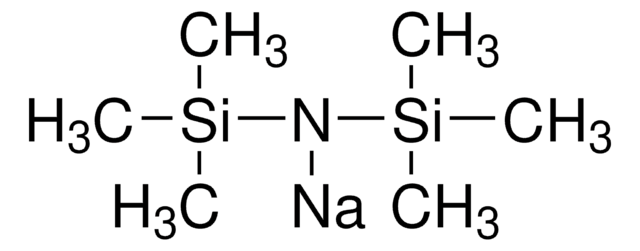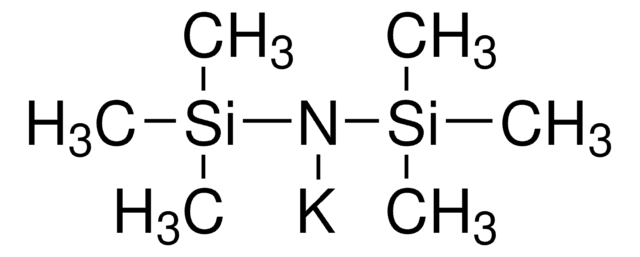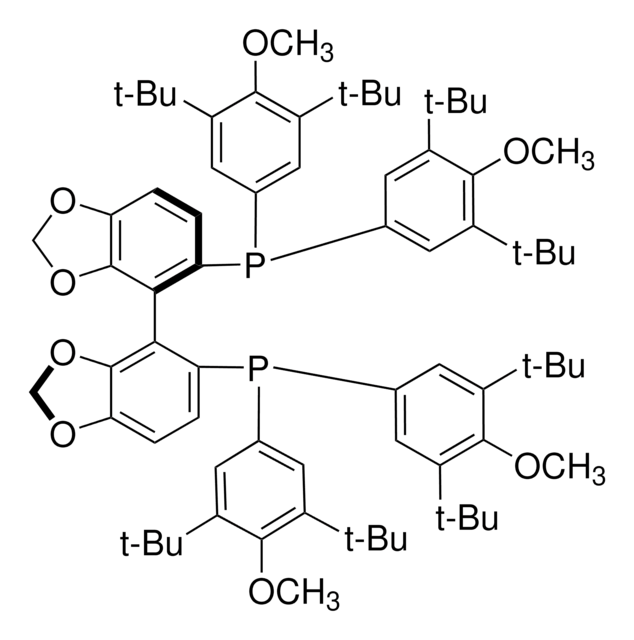771546
Sodium bis(trimethylsilyl)amide solution
0.5 M in methyl tert-butyl ether
Synonym(s):
Hexamethyldisilazane sodium salt solution
About This Item
Recommended Products
form
liquid
concentration
0.5 M in methyl tert-butyl ether
density
0.761 g/mL at 25 °C
storage temp.
2-8°C
SMILES string
C[Si](C)(C)N([Na])[Si](C)(C)C
InChI
1S/C6H18NSi2.Na/c1-8(2,3)7-9(4,5)6;/h1-6H3;/q-1;+1
InChI key
WRIKHQLVHPKCJU-UHFFFAOYSA-N
Looking for similar products? Visit Product Comparison Guide
Application
Signal Word
Danger
Hazard Statements
Precautionary Statements
Hazard Classifications
Eye Dam. 1 - Flam. Liq. 2 - Skin Corr. 1B
Supplementary Hazards
Storage Class Code
3 - Flammable liquids
WGK
WGK 2
Flash Point(F)
-27.4 °F - closed cup
Flash Point(C)
-33.0 °C - closed cup
Choose from one of the most recent versions:
Certificates of Analysis (COA)
Don't see the Right Version?
If you require a particular version, you can look up a specific certificate by the Lot or Batch number.
Already Own This Product?
Find documentation for the products that you have recently purchased in the Document Library.
Our team of scientists has experience in all areas of research including Life Science, Material Science, Chemical Synthesis, Chromatography, Analytical and many others.
Contact Technical Service





